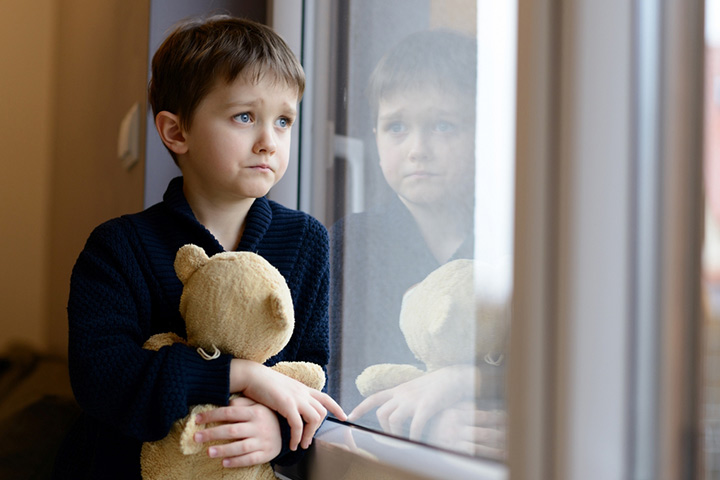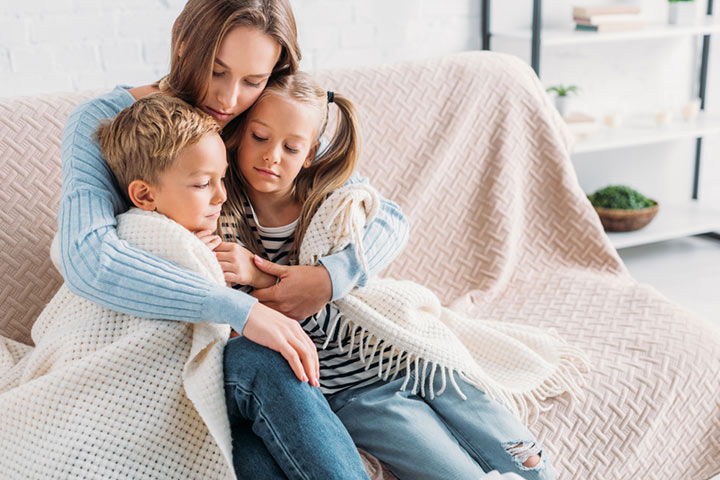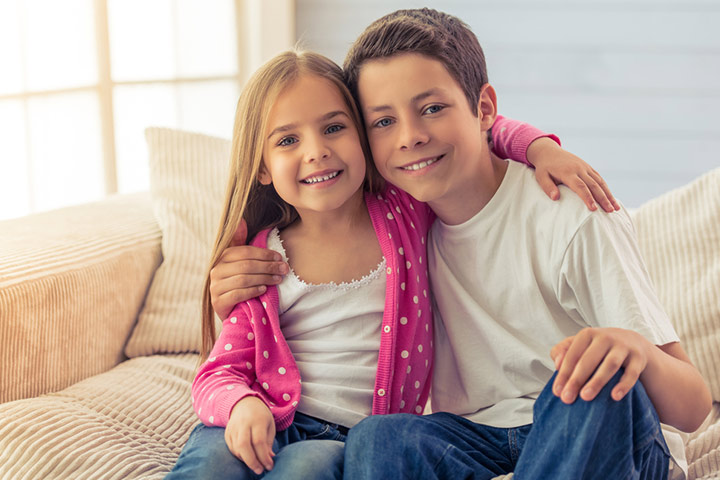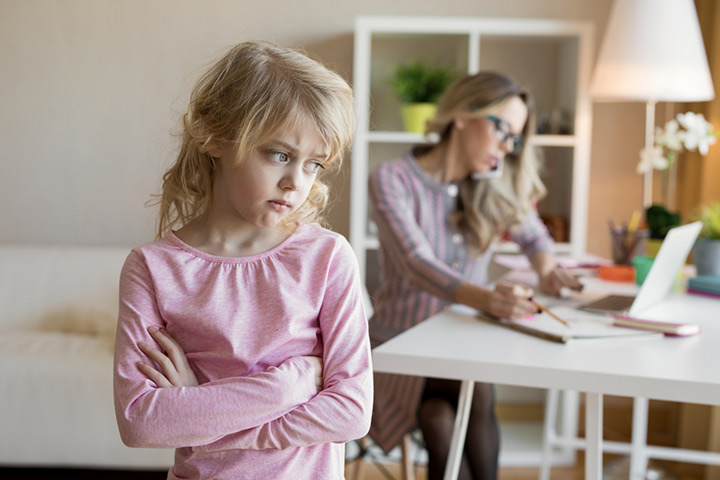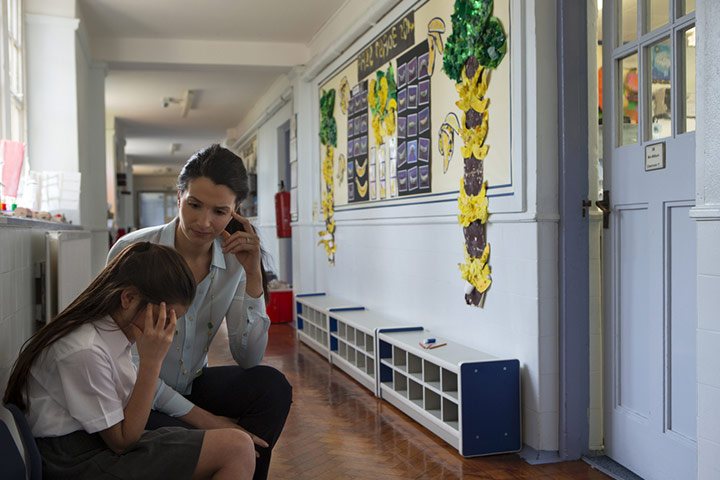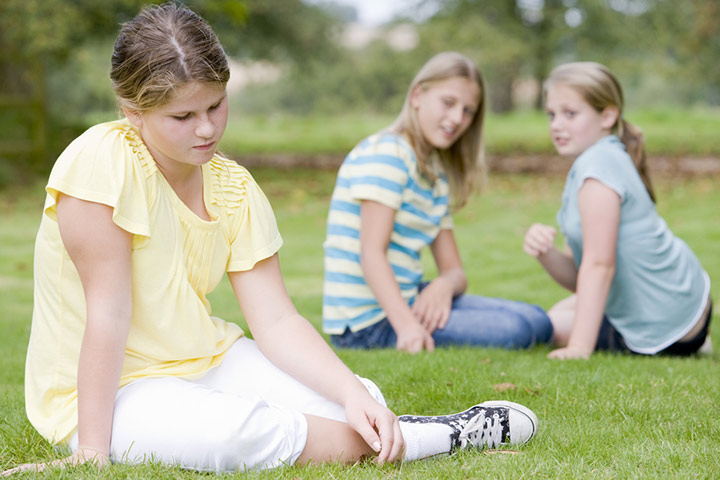
Image: Shutterstock
No two kids share the exact same personality or behave the same. Similarly, no two parents are the same either — and the latter can be said about parenting styles. Truth be told, babies don’t come with a user manual, and parenting is anything but black and white. What works for someone else’s kid may not necessarily work for yours and vice versa. But one thing is for sure — your parenting has an immense impact on your child and what they will turn out to be in the future. Although parenting styles don’t fit into one box, there are four main styles of parenting that you could closely relate to (1). Each one of these parenting styles has a different effect on children.
You’re probably wondering what these parenting styles are, which one is best, and which parenting style you seem to be inclined towards. Keep reading to find out!
1. Authoritarian Parenting
Do you strongly believe in the idea of punishment? Is discipline at the top of your priority list? Do you think that children should be “seen” but not heard? Communication between you and your child is a one-way street, and it only works in your favor. If all this is you, then the chances are that you are an authoritarian parent.
In this type of parenting style, parents always call the shots. They set several rules and expect their children to follow them without any push back. In most cases, authoritarian parents decide almost everything for their children and rarely allow them to decide for themselves. They believe in demanding respect, as opposed to commanding respect. The child may have respect for such parents, but it is often coupled with fear and anxiety.
The Effect Of Authoritarian Parenting On Children
Image: Shutterstock
Just because you are your child’s parent does not mean that you “own” them. It is essential to know that children are individuals who need to figure life out by themselves with your guidance — not your force. Children who have authoritarian parents often turn out to have low-self esteem. They also struggle with problem-solving and decision-making. In some cases, these children may also end up being aggressive and hostile.
2. Authoritative Parenting
Image: Shutterstock
Authoritative parents are often firm in their parenting, but they also display fairness and rationality. They make it a point to set clear boundaries, rules, and expectations, all of which are accompanied by a reason or explanation for why they have developed these guidelines. They believe that children should have a voice of their own and should be encouraged to speak up for themselves.
Although an authoritative figure is in their child’s life, authoritative parents have the right balance between authority and friendship. If you’re an authoritative parent, the chances are that you value your child’s space and know the importance of maintaining a positive relationship with them. Because of this, your child knows they can seek your help and confide in you, should the need arise.
The Effect Of Authoritative Parenting On Children
Research suggests that children who have authoritative parents often turn out to be responsible adults. They also tend to express their opinions freely and are generally more sensitive and empathetic. In addition to this, these children also have higher chances of being happier in life. They are good at decision-making and are often confident about their decisions, built with a good amount of self-esteem.
3. Uninvolved Parenting
As the name suggests, uninvolved parenting means precisely that — you don’t communicate much with your child, you don’t get involved in their daily activities, the bond you share is not a strong one, and you have little to no knowledge of what your child is up to. If this applies to you, then you follow the uninvolved parenting style. In such cases, uninvolved parents set little to no rules, rarely expect any form of discipline, and not a lot of time is devoted to meeting their children’s basic needs. Sometimes, such a form of parenting may be unintentional — for example, when a parent is suffering from mental health issues or drug abuse.
The Effect Of Uninvolved Parenting On Children
Unfortunately, most children who have uninvolved parents tend to suffer from low-self esteem and trust issues. Most of these kids also suffer academically, struggle with social and behavioral problems, and have stress-related issues.
4. Permissive Parenting
The best way to define permissive parenting will be one where parents are lenient and prefer not to interfere much with the decisions their children make. As a permissive parent, you may set rules, but you very rarely observe to see if they are followed. Permissive parents are very lax and have a laid-back attitude when it comes to their children. In most cases, a permissive parent acts friendly and encourages their children to confide in them no matter what. They may support their kids in whatever they do, and they don’t proactively discourage them from doing something wrong either.
The Effect Of Permissive Parenting On Children
One of the most common traits of children who have permissive parents is that they may struggle on the academic front. They tend to have behavioral problems and get into trouble with authority figures. Most of these kids also suffer from physical health problems such as obesity since their parents make little to no effort to stop them from eating junk food.
Having gone through the different styles of parenting we discussed above, you probably have an idea which one your parents or you as a parent fall into. It’s also common for parents to adhere to a mix of two or more of these styles. In fact, different situations demand techniques from these different styles. Not all parents fit into one specific category — it is normal to share traits from two or more parenting styles. What matters is that you do what’s best for your child and yourself. It’s no scientific theory but a mixture of understanding emotions, teaching values, and being caring. With the right effort and dedication, you can be the best parent for your child. What are your thoughts on this? Let us know in the comments below!
References
- Types of Parenting Styles and Effects On Children
https://www.ncbi.nlm.nih.gov/books/NBK568743/


